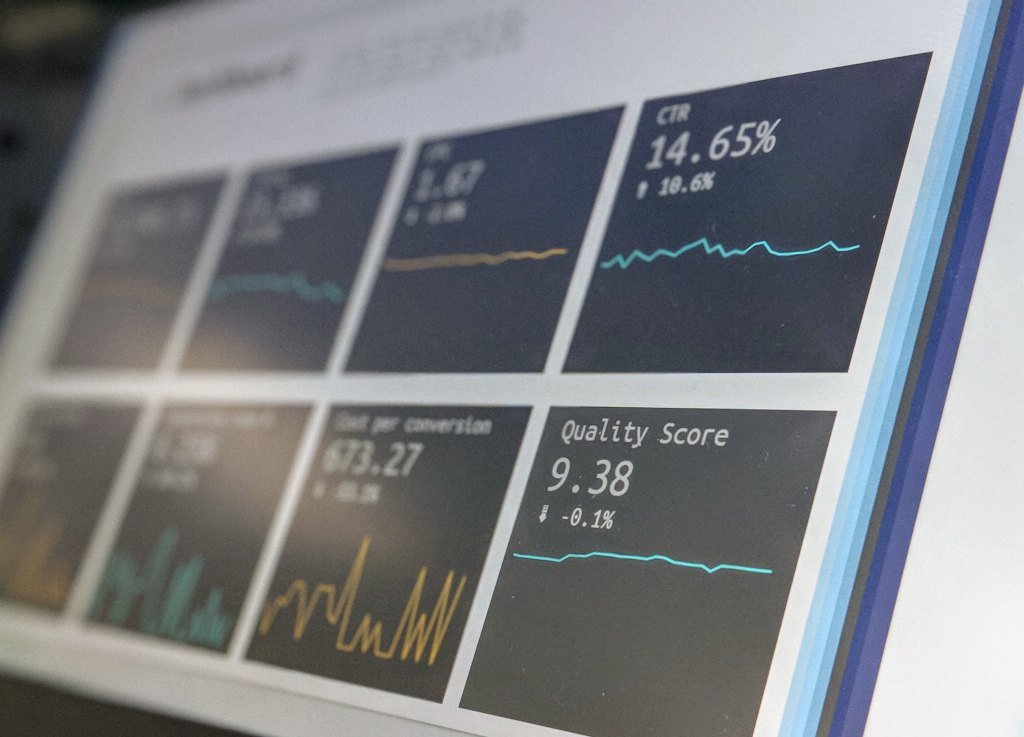Social media has become an integral part of the modern world, and businesses of all sizes are leveraging its power to increase their reach and connect with their customers. The current number of worldwide social media users is 2.73 billion and is estimated to reach 5.85 billion by 2027. These numbers obviously explain why it is crucial to also consider social media in your marketing efforts.
However, managing social media projects can be a complex and time-consuming task that requires careful planning, coordination, and execution with or without marketing automation tools.
Social media project management involves a set of methodologies and tools designed to help businesses effectively manage their social media activities, from creating and scheduling content to analyze performance metrics.
In this article, we will provide an overview of everything you need to know about social media project management.
What is Social Media Project Management?

Social media project management is the process of planning, organizing, and executing social media initiatives to achieve specific business objectives.
It involves creating a project plan that outlines the goals, target audience, content creation, posting schedule, and performance metrics.
Social media project management requires a strategic approach, as it involves coordinating various tasks and team members to ensure a successful outcome. It also involves using various free project management tools and technologies to manage social media accounts, monitor engagement, track metrics, and analyze results.
By employing social media project management methodologies, businesses can create engaging content, increase brand awareness, boost customer engagement, and drive conversions. Overall, social media project management is an essential part of any business’s digital marketing strategy in today’s digital age.
Social Media Project Management vs Traditional Management

Social media project management differs from traditional management in several ways.
Unlike conventional management techniques, social media project management involves real-time engagement with customers, a rapidly changing environment, and a more casual communication style. Social media platforms demand agility and responsiveness, which requires an adaptable and flexible approach to project management. Furthermore, social media projects are often driven by data analytics, which helps businesses track user behavior, sentiment, and engagement levels.
Traditional management typically relies on top-down decision-making processes, hierarchical organizational structures, and a more formal communication style. In contrast, social media project management emphasizes collaboration, creativity, and experimentation, and encourages team members to share their ideas and opinions.
By embracing social media project management techniques, businesses can stay ahead of the curve and adapt to the fast-paced, ever-changing social media landscape.
What are the Best Practices of Social Media Project Management?
Social media project management involves a wide range of tasks and activities aimed at achieving specific business objectives through social media channels. To ensure successful project execution, it is essential to identify and incorporate the key elements of social media project management.
These essential components are the building blocks of an effective project management strategy, and they encompass all aspects of the social media project, from planning and content creation to measurement and analysis.
In the following paragraphs, we will discuss the key elements of social media project management, including goal setting, audience targeting, content planning, publishing and scheduling, engagement tracking, and performance analysis.
By understanding and incorporating these critical components, businesses can create a comprehensive and effective social media project management strategy that drives success and growth on social media platforms.
1. Goal Setting

Goal setting is a crucial component of social media project management. Before launching a social media campaign, it is essential to identify the business objectives that the campaign aims to achieve.
Goals can vary depending on the business, but they may include increasing brand awareness, boosting engagement, driving traffic to a website, or increasing sales. Once the objectives are identified, they should be translated into specific, measurable, attainable, relevant, and time-bound (SMART) goals that can be tracked and evaluated.
Clear and well-defined goals help keep the project on track and ensure that it is aligned with the overall business strategy. It also helps to define the key performance indicators (KPIs) that will be used to measure the success of the social media project.
By setting specific goals and metrics, businesses can focus their efforts on achieving the desired outcomes and ensure that the social media project is driving the desired results.
2. Audience Tracking

One critical component of social media project management is audience tracking. This involves identifying and understanding the target audience, including their demographics, preferences, and behaviors.
Social media platforms provide a wealth of data that can be used to analyze the audience’s engagement levels, sentiment, and feedback.
By tracking the audience’s behavior, you can create content that resonates with them and build meaningful relationships. Audience tracking also helps to refine the targeting strategy and optimize the content for maximum impact.
3. Content Planning

Creating engaging and effective content is crucial for any social media project. Content planning involves developing a comprehensive content strategy that aligns with the business goals and target audience.
The content plan should include the type of content, topics, tone, and messaging, as well as the publishing schedule. It should also consider the visual elements, such as images, videos, or infographics, that can enhance the content’s appeal. Creative social media content ideas like interactive content, leveraging social media QR codes to direct the audience toward your desired campaign, and, using cultural references positively to advertise your desired product. Helps in experimenting with different ways of creating and distributing content.
The content plan should be flexible enough to accommodate any changes to the social media landscape or customer preferences.
4. Campaign Running

Campaign planning is a crucial element of social media project management. A social media campaign is a coordinated effort to achieve specific business goals using social media platforms. It involves developing a clear and comprehensive plan that outlines the campaign’s objectives, target audience, content strategy, budget, timeline, and metrics for measuring success.
A successful social media campaign requires careful planning and execution to ensure that it resonates with the target audience and drives the desired results.
Social media project managers like you use a variety of tools and techniques to plan and manage social media campaigns, including calendars, social media scheduling tools, and analytics platforms. You also need to monitor and respond to customer feedback and adjust the campaign strategy as needed.
By managing social media campaigns effectively, businesses can build their brand reputation, increase engagement and customer loyalty, and drive growth and revenue.
5. Social Influencer Collaborations

Social influencer collaborations are a popular and effective strategy in social media project management. A social influencer is an individual with a significant following on social media platforms who can influence the behavior and opinions of their followers.
Partnering with social influencers can help businesses reach a larger and more targeted audience and build credibility and trust with their followers. You can identify and engage with the right social influencers who align with the business goals and brand identity. You can also negotiate terms and compensation for the partnership and ensure that the content aligns with the campaign’s objectives and messaging.
Influencer marketing can take various forms, including sponsored posts, guest blogging, product reviews, and giveaways. By collaborating with social influencers, businesses can increase their reach, build brand awareness and credibility, and drive traffic and sales.
6. Publishing and Scheduling

Social media project managers need to have a well-defined publishing and scheduling strategy to ensure that the content reaches the intended audience at the right time.
Publishing involves creating and posting content on relevant social media platforms, while scheduling ensures that the content is published at the optimal time for maximum engagement.
Social media project managers like you can use a variety of tools and technologies to schedule content, such as Hootsuite, Buffer, or Sprout Social, which allow you to plan and publish content in advance, even when you are not physically present.
7. Engagement Tracking

Tracking engagement is another critical component of social media project management. Engagement tracking involves monitoring the social media account’s performance, such as likes, comments, shares, and direct messages, and responding promptly to the customer’s queries and feedback.
You, as a social media project manager, can use engagement tracking to evaluate the success of the content strategy and refine it accordingly. You can also use engagement data to identify customer sentiment and adjust the content strategy to meet their changing preferences.
8. Social Listening and Monitoring

Social media platforms are a goldmine of valuable data that businesses can use to identify customer sentiment, preferences, and feedback. Social media listening involves tracking and analyzing social media conversations about a brand, product, or service to identify customer sentiment, feedback, and behavior.
Social media monitoring, on the other hand, involves tracking and analyzing the brand’s social media accounts’ performance, such as engagement rates, reach, and impressions. You can use a variety of tools and technologies to listen to and monitor social media platforms.
By monitoring and analyzing social media data, businesses can gain valuable insights into customer behavior and preferences, identify emerging trends and issues, and adjust content and strategy accordingly.
Social media listening and monitoring can help businesses build stronger relationships with their customers, enhance their reputation, and drive growth and revenue.
9. Performance Analysis

As a social media project manager, you need to analyze the project’s performance regularly. The performance analysis involves reviewing the KPIs and metrics established during the goal-setting phase and evaluating how well the project is performing against them.
Metrics may include the number of followers, engagement rates, click-through rates, or sales. Performance analysis allows you to measure the project’s effectiveness, identify areas for improvement, and adjust the strategy accordingly. By regularly analyzing the project’s performance, social media project managers can fine-tune the strategy and optimize it for maximum results.
What are the Benefits of Social Media Project Management?

Social media project management has become an essential aspect of digital marketing, with businesses of all sizes recognizing the importance of a robust social media strategy. Here are the benefits of social media project management:
1. Increased Brand Visibility
One of the key benefits of social media project management is increased brand visibility. By developing a strong social media presence, businesses can reach a wider audience, attract new customers, and improve their online reputation.
2. Improved Customer Engagement
Social media project management enables businesses to engage with their customers and build stronger relationships. By responding to customer inquiries and feedback, businesses can build trust and loyalty and foster a sense of community around their brand. Think of it as another channel for support of your customers, it’s a great addition to email, a typical landline phone service, a chat box, or any other medium that you might have incorporated.
3. Enhanced Brand Reputation
With social media project management, you can enhance your brand reputation by sharing valuable content, providing exceptional customer service, and responding to customer feedback. Positive online reviews and engagement can lead to a more favorable perception of the brand.
4. Valuable Insights into Customer Behavior and Preferences
Social media project management provides businesses with valuable insights into customer behavior and preferences. By analyzing engagement metrics and social media analytics, businesses can understand what content resonates with their audience and identify emerging trends and issues.
5. Drive Revenue Growth
Last but not least, social media project management can drive revenue growth by generating leads and increasing conversions. By creating compelling content, engaging with customers, and showcasing their products and services, businesses can drive traffic and sales through their social media channels.
Conclusion
Taken as a whole, social media project management is a critical aspect of modern digital marketing, with businesses of all sizes leveraging social media channels to reach their target audience and achieve their marketing goals.
Effective social media project management requires careful planning, strategy development, and execution. By incorporating the above-mentioned best practices, you can develop a robust social media strategy that delivers tangible results for your business.
Overall, social media project management represents an essential tool for businesses looking to build a strong online presence and compete in today’s digital marketplace.























Leave a comment!